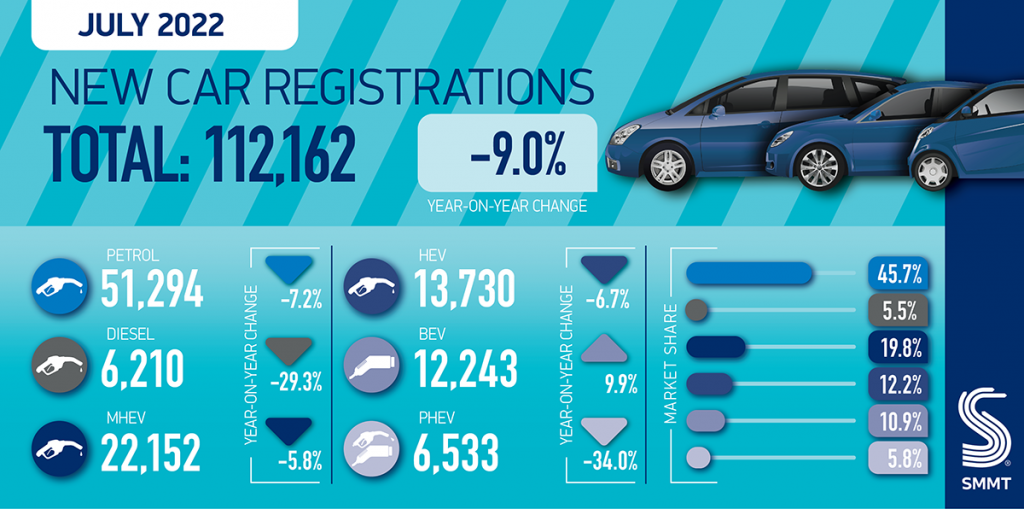New car registrations in the UK fell 9% to reach 112,162 units in July, according to the latest figures from the Society of Motor Manufacturers and Traders (SMMT), marking the fifth consecutive month of decline.
Although the fall is the smallest recorded this year, ongoing global supply chain issues like lack of semiconductors, exacerbated by Covid lockdowns in China continued to frustrate order fulfilment. This, in addition to disruption from the war in Ukraine, restricted production output and therefore supply into the UK's new car market.
Battery electric vehicles (BEV), however, bucked the trend and grew their market share to 10.9% in July. Although this is the weakest monthly uplift recorded by BEVs since the pandemic, overall growth in the year has reached 49.9%. July was a weaker month for hybrid electric vehicle (HEV) uptake, with registrations falling 6.7%, taking 12.2% of the market.
Plug-in hybrids (PHEVs) fell 34%, signalling the volatility in the supply chain, which cut their market share to 5.8%.
“Despite the automotive industry continuing to be stifled by supply shortages, today’s figures illustrate that demand for electric vehicles (EVs) remains strong, with EVs making up approximately one-third of all vehicle registrations in July,” said Jon Lawes, managing director of the car finance and loan company Novuna Vehicle Solutions.
While the sector expects the second half to improve as supply issues start to recede, it is unlikely that the market will be able to recover the significant losses sustained so far, the SMMT notes.
The outlook for the full year has therefore been revised downwards to 1.6 million new car registrations – a 2.8% fall vs 2021, as the industry faces its most challenging year in three decades.
The coming year is likely to be an improvement, with overall registrations anticipated to reach to 1.89 million (rather than 2.02mn), with plug-ins comprising 27.8% of the market.
“The next Prime Minister must create the conditions for economic growth, restore consumer confidence and support the transition to zero-emission mobility,” said Mike Hawes, chief executive of SMMT.
In July, Nissan Qashqai, MINI, and Hyundai Tucson bagged the top three spots as bestsellers.
